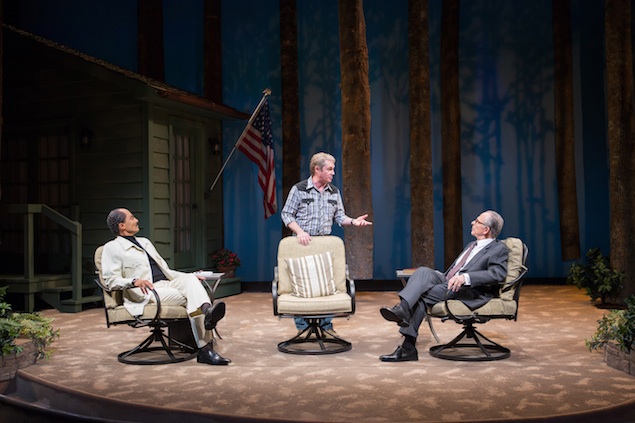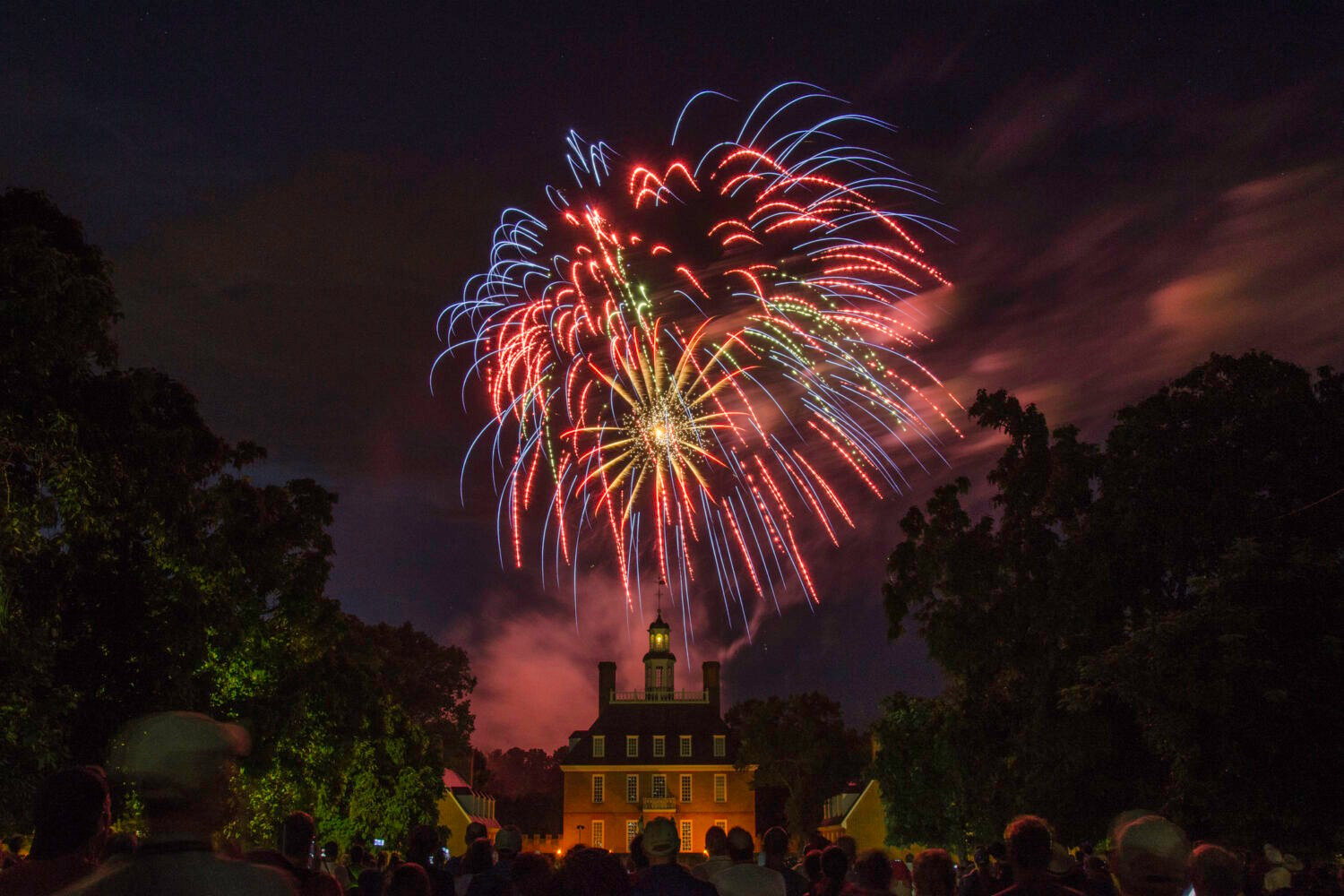The political is personal in Lawrence Wright’s Camp David, a tightly reported and gracefully performed account of the 13-day period leading up to the signing of the Camp David Accords in 1978. For President Jimmy Carter (Richard Thomas), forging some kind—any kind—of peace agreement means a chance to ensure his own legacy, while also doing something to warrant what he interprets as a God-granted stint in the White House.
This unfortunately means wrangling the guileful Egyptian president, Anwar Sadat (Khaled Nabawy), as well as the truculent Israeli prime minister, Menachem Begin (Ron Rifkin), neither of whom seems remotely inclined to budge so much as a fraction of an inch. Wright is a New Yorker staff writer and the author of 2013’s Going Clear: Scientology, Hollywood, and the Prison of Belief. His reportorial skills are virtually unrivaled, all of which grounds Camp David firmly in the realm of fact—at times, excessively. (There are reasons Hollywood injects murder, intrigue, and threesomes with Secret Service agents into dramas about Washington, and those reasons are often that policy-making can be relatively boring.)
Still, truth is stranger than fiction, and the most remarkable aspect of this show is how suspenseful it can be, given that the outcome has been in the history books now for 35 years or so. Wright and director Molly Smith’s most potent ingredient theatrically is the tension that underscores any interaction between Begin and Sadat, who fundamentally dislike and distrust each other. Carter is written as a profoundly skilled negotiator who deftly manipulates the pair even as he drives around in a ridiculous golf cart and sports hokey plaid shirts and enormous ’70s lapels (the pitch-perfect costumes are by Paul Tazewell).
The setting of Camp David itself—manifested by set designer Walt Spangler through large tree trunks that descend from on high, a handful of shrubs, and log cabins that appear and disappear from nowhere—is one of the trickier elements of the show, given that it adds a sense of claustrophobia to the already repetitive nature of the arguments between Begin and Sadat. When Carter takes the pair on a day trip to Gettysburg, the relief on all sides is palpable. But another trump card the US President has to work with is his wife, Rosalynn (the engaging Hallie Foote), who neutralizes any acid with honeyed tones and sugary cups of tea. Within the show, Rosalynn has an almost uncanny instinct for when she’s needed, appearing as if from nowhere to placate Begin and Sadat, whom she refers to by their first names and quizzes about their families.
Wright also manages to draw a good amount of humor from such a tense and intense scenario, having the endearingly funny Carter snipe at his wife that the leaders’ varying responses makes him feel as if he’s talking to a Magic 8-Ball. The unmistakable timbre of Thomas’s voice, recognizable from The Waltons to The Americans, is ever-present, but the actor does a fine job with Carter’s Georgia twang, conveying both his gentle spirit and his steely determination to get things done, counseled ably by his wife.
Rifkin’s Begin is perhaps the most complex character of the play and the most challenging to portray, and the actor, a TV and theater veteran, renders his flaws and his conviction with aplomb. Nabawy’s Sadat is as evasive as the Cheshire Cat and almost as charming. The show is at its most compelling when the two sparring leaders find moments of reconciliation—that they both learned English in prison, for instance, or when they happen upon each other praying in the forest. Although the final scenes have a deus ex machina quality that hinges around a remarkable piece of emotional blackmail by Carter, they also serve to remind us what the past 13 days have actually been about. Wright’s closing emphasis on the future instead of the past offers an insightful summation of the sort of reconciliation and compromise we can only hope to see again in our lifetimes.
Camp David is at Arena Stage through May 4. Running time is about 90 minutes, with no intermission. Tickets ($55 and up) are available at Arena’s website.

















